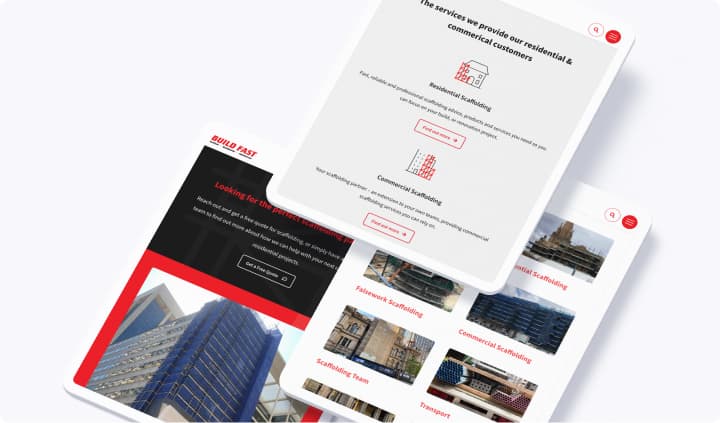What is a page builder, and is it the right choice for your website?
Building a website is an intimidating task. With so much brand personality to express, so much functionality to provide, and so much code to wrestle with, it can be challenging to know where to begin.
If you have the expertise to handle all this yourself or the resources available to put an in-house team on the job, building your website might not seem so tricky.
However, the fact is most business owners can draw on neither of these things. This is where a page builder can make all the difference.
What is a page builder?
A page builder is a tool that those without a background in coding can use to build a website. Simply select pre-programmed elements and drag these elements into place within the webpage.
Users then add any text or images they want to the site and customise it in any way they see fit (to an extent). Templates and other sets of pre-coded features make life even easier.
The advantages of a page builder
- You can quickly and easily design and create a fully functioning website with no previous coding experience.
- You do not need to hire an in-house staff or use a third party to get the functionality you need.
- You can add plug-ins and other tools to enhance the functionality of your website.
- You will gain more freedom over the form, function, and design of your website than if you were to deploy a pre-made theme.
- Patches and other security features keep your website and its users safe from harm.
The disadvantages of a page builder
As you can see, there are certainly quite a few advantages to choosing this kind of option for your website.
But, unfortunately, the disadvantages of using a page builder tend to outweigh what you might gain.
Here’s why:
- Adding extra functionality may require coding — for example, when building new page layouts or menu navigation beyond the template items — so some background in computing languages may be required once you go beyond a basic website.
- Adding lots of features to your website — something that is easy to do with a page builder — may result in a serious dip in website performance.
- It takes years of experience to master each aspect of website development, design and construction. A page builder may allow you to display your desired information, but the finished website may still fall short.
- You need experience in order to know what works to understand design and development best practices, and to recognise how visitors interact with your site. Without this experience, a page builder might not be enough, and your website may be left ineffective.
- When you need to scale your website or when you need to add more functionality for your customers, you may find that the page builder cannot support this, or that grappling with the code required for this becomes tricky and messy.
- You may find that different features or elements begin to rely upon each other. This causes complications when you need to remove or turn off a particular element.
- They can weigh your website down, making it slow and sluggish.
- Security patches may not be as effective as in-house security or security delivered by an MSP.
So, with this in mind, it’s important to go back to basics and understand what you need from your website, both now, and in the future.
You will need to overlay this with the other aspects that come hand in hand – like budget, time, expertise.
Page builders can offer a great deal, but you could end up losing out. It’s impossible to future-proof a website, the key is to understand the pros and cons, so you can make the right decision for your business.



